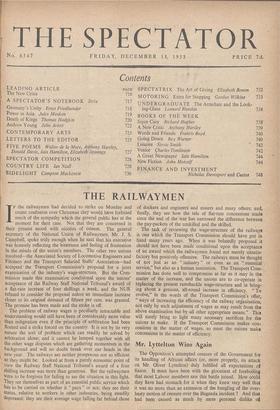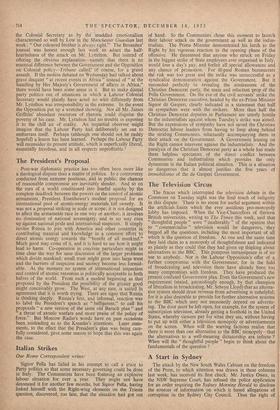Mr. Lyttelton Wins Again
The Opposition's attempted censure of the Government for its handling of African affairs (or, more properly, its attack on Mr. Oliver Lyttelton) duly fulfilled all expectations of fiasco. It must have been with the gloomiest of foreboding that most Labour members saw this battle joined. How could they have had stomach for it when they knew very well that it was no more than an extension of the bungling of the over- hasty motion of censure over the Buganda incident ? And that had been caused as much by mere personal dislike oe the Colonial Secretary as by the muddled emotionalism characterised so well by Low in the Manchester Guardian last week : " Our coloured brother is always right." The Bevanites' journal was honest enough last week to admit the half- heartedness of the attack on Mr. Lyttelton. But instead of offering the obvious explanation—namely that there is no essential difference between the Government and the Opposition on Colonial policy—Tribune called: of course, for a grand assault. If the motion debated on Wednesday had talked about grave disquiet " at recent events in Africa " instead of " at the handling by Her Majesty's Government of affairs in Africa," there would have been some sense in it. But to make dismal party politics out of situations in which a Labour Colonial Secretary would plainly have acted no whit differently from Mr. Lyttelton was irresponsibility in the extreme. In the event the Opposition put up a wretched showing. Not all Mr. James Griffiths' abundant resources of rhetoric could disguise the poverty of his case. Mr. Lyttelton had no trouble in exposing it to the chill air of reality. An impartial observer might imagine that the Labour Party had deliberately set out, to embarrass itself. Perhaps (although one should not be rashly hopeful) a lesson has been learned. Perhaps the Labour Party will reconsider its present attitude, which is superficially liberal, essentially frivolous, and in all respects unprofitable.'











































 Previous page
Previous page